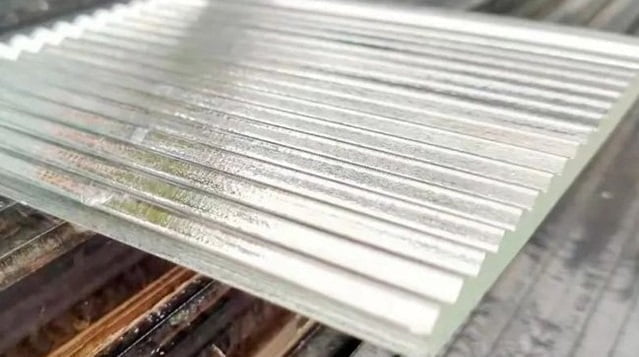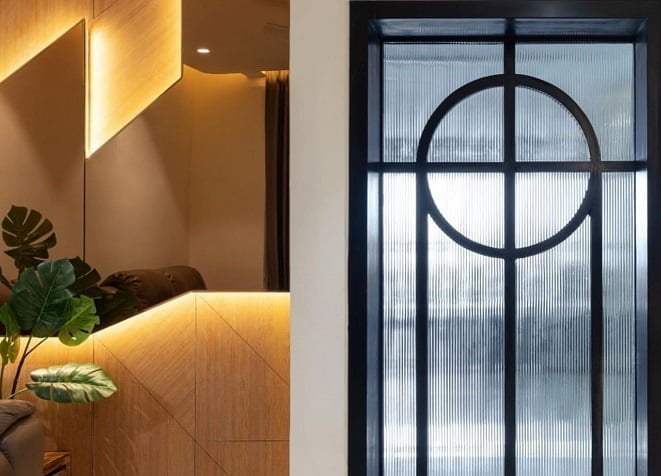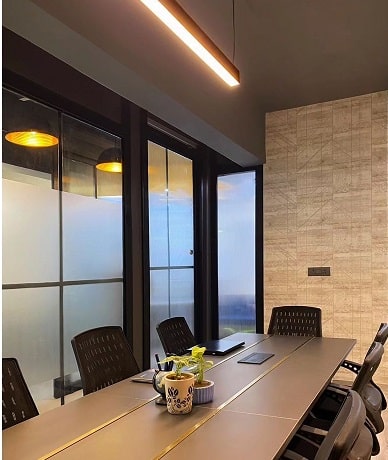What is Fluted Glass
As a glazier with many years of experience in the Australian glass industry, I’ve had the opportunity to work extensively with different types of glass, and one type that stands out is fluted glass. This guide provides a comprehensive evaluation of fluted glass, looking at its creation, uses, benefits, comparisons with similar materials, and more.

Understanding Fluted Glass
Characterized by its striking vertical grooves, fluted glass not only elevates the aesthetic appeal but also contributes functional benefits across a wide range of applications.
How is it Made?
The production process of fluted glass involves passing a molten glass sheet over a roller imprinted with a decorative pattern. This method produces the characteristic raised ridges or ‘flutes’ that give fluted glass its name and distinctive appearance.
Practical Applications for Fluted Glass
Fluted glass’s charm and utility extend to a variety of applications, such as windows, doors, and skylights, owing to its ability to diffuse light while preserving privacy. The groove’s thickness and impression depth can be manipulated to generate diverse visual effects, granting an elegant touch of individuality and style to any dwelling.

Benefits of Fluted Glass
Fluted glass has many advantages that make it a versatile choice for a variety of applications. Here are some key benefits:
- Enhanced Privacy: The vertical grooves obscure sight lines while allowing light passage, ideal for privacy in office partitions or bathroom windows.
- Aesthetic Appeal: Offers a distinctive, elegant look, enhancing the aesthetics of any space with its decorative pattern. Great for windows, doors, and partitions.
- Glare Reduction: Its design diffuses light, reducing glare, particularly in areas with abundant sunlight.
- Versatility: Appropriate for a wide range of settings, both residential and commercial, and for interior and exterior applications.
- Noise Reduction: The grooves help block sound waves, offering noise reduction which is beneficial in quieter environments.
- Durability: Can be toughened for enhanced strength and impact resistance, making it safe and durable for uses like shower doors and partitions.
- Easy to Clean: Despite requiring care due to the grooved design, its surface is easy to maintain with straightforward wiping and cleaning.
Drawbacks of Fluted Glass
- Higher Cost: More expensive than regular glass, which might be a concern for budget-conscious consumers despite its unique properties and visual appeal.
- Cleaning Challenges: The grooved structure can make cleaning more difficult than flat glass, as grooves may accumulate dust and dirt, requiring extra effort to maintain cleanliness.
- Limited Light Transparency: While it diffuses light to create privacy and a softer glow, it may not suit needs for full transparency and clear views due to the obscuring nature of the flutes.
- Customization Limitations: Although there are some customization options like varying flute thickness and depth, the choices are less diverse compared to other glass types.
- Fragility Concerns: Even though it can be toughened for safety, fluted glass is generally more fragile than some other glass types, potentially making it less suitable for high-durability applications.
Fluted Glass vs Reeded Glass: A Comparison
Fluted glass, also known as reeded or ribbed glass, is essentially the same product with subtle variations. This type of glass is distinguished by its unique grooved texture, where the grooves can run either vertically or horizontally, depending on the specific design. Whether referred to as fluted, reeded, or ribbed, these terms typically describe the same glass type, known for its elegant and distinctive appearance. The grooves, whether vertical (fluted), horizontal (reeded), or more pronounced (ribbed), offer both aesthetic appeal and practical benefits. They provide a degree of privacy while still allowing light to filter through, making this glass ideal for applications such as room dividers, window panes, lamp shades, and decorative elements in various settings.
Can Fluted Glass Be Toughened?
Yes, fluted glass can be toughened. Toughening is a process of heating and cooling the glass to improve its strength and durability. This procedure, which involves heating and cooling the glass, augments its strength and resilience. For safety-critical applications such as shower doors and partitions, toughened fluted glass is often the preferred choice.
Is Fluted Glass Expensive?
The price of fluted glass depends on its size and quality. Generally speaking, it costs more than regular glass. As a benchmark, 6mm float glass typically costs $45 per sqm, while fluted glass of comparable quality would be around $75 per sqm.
Case Studies and
Real-Life Experiences with Fluted Glass
Case Study 1: Innovative Office Partitions
A tech start-up named Aircrex in Surry Hills NSW was looking to revamp their office space to create an environment that balanced open collaboration and private work areas. They chose fluted glass for their partitions. The fluted glass provided a sense of privacy while still allowing light to permeate throughout the office. Post-installation, employee satisfaction significantly improved, with workers praising the blend of privacy and openness that the fluted glass offered.

Discover the transformative
elegance of fluted glass
contact us now to start your custom project!
Alternatives to Fluted Glass

Khalil is the owner of Splendid Window Glass Repairs and has over 8 years experience as a glazier specialising in window glass repair, replacement and installations. Khalil takes great pride in his work and prides himself on providing an excellent service to all of his customers, no matter how big or small the job may be.

